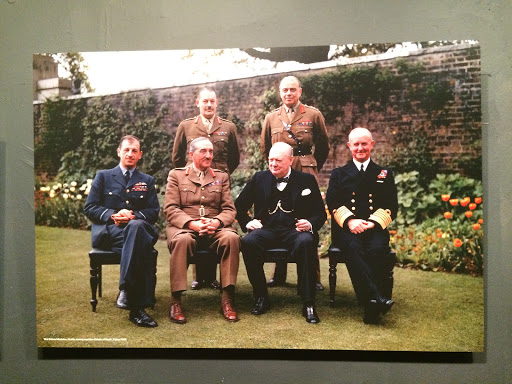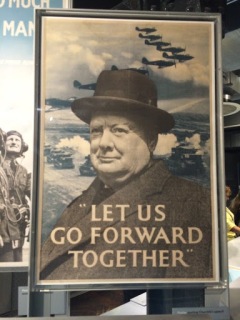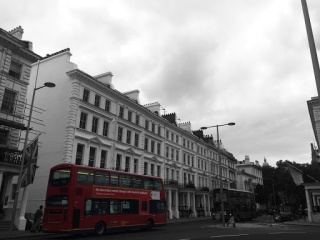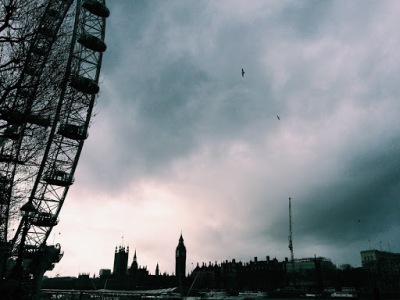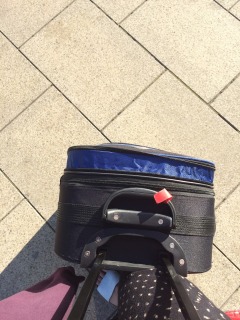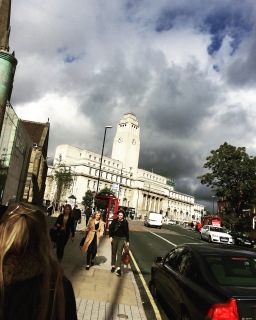This week I managed to get my boyfriend to agree to accompany me to Churchill’s War Rooms (created by the Imperial War Museum), in London. As a history student, I was so excited to get access to the actual rooms where the most important British decisions of the Second World War were made. The War Rooms have been made into a museum but is still actually where they were at the time, and much of it is untouched except for the addition of glass windows so sticky-handed tourists cannot touch. It’s located in the heart of British politics, next door to the Treasury and a stones throw from Westminster itself. The importance of the exhibit can therefore be felt before entry.
Queue hypocrisy: as important as the War museum is, I refused to pay the optional donation. This was for two reasons: 1) I am a poor student and did not want to go against my stance in my previous blog ‘A Student’s Guide to Experiencing London on the Cheap‘. 2) The price lists were rather misleading. In large print behind the cashier desk stated a students ticket cost £15.20, however in smaller print at the bottom, it said this price included an optional 10% donation. This sort of miscommunication is something I dislike; I would rather them have a donation jar at the end of the tour where I can contribute whatever I like without feeling pressured. Student rant over.
What I was pleased to find were the free audio sets we could take round with us. Yes, it meant we had to walk around the whole tour holding the headset to our ear like a telephone, but we gained so much extra information we wouldn’t have heard without it. Usually in places like this, these sort of things cost, so well done IWM, good job.
Here I must apologise for the awful photos I took on my iPhone 5s; the lighting in there was awful and most photos are taken through a glass screen!
As I said, the entire museum was virtually untouched from when it was left for the last time in 1945. Cleverly, clocks had been set to five minutes to five, as if waiting for the last meeting of the War Cabinet to take place on 28th March 1945. Papers on the tables are browning and curling, and fans on the walls rust. It was truly an abandoned treasure.
 |
| In this photo you can see Churchill’s wooden chair, far superior to the chairs of the rest of the war cabinet |
The audio tour also provided witty information of the sort that one day I hope I need in a pub quiz. For example, a door marked as a toilet was actually the room which held Churchill’s private phone which connected him directly to Franklin Roosevelt. Seeing the room where Britain’s ‘special relationship’ with the USA developed was somewhat of a history student’s dream.
Another fun fact was found at the weather forecast sign. As workers would often not venture outside for the entirety of their 12 hour shifts, this wooden box (shown below) would be changed depending on the weather. During a bombing, the forecast was changed to say ‘Windy’, which was a joke between workers.
Propaganda played a huge role in recruiting people for the war, and the collection at the War Rooms was fantastic! Churchill’s quotes have guided generations in paying their respects to those who fought in both world wars.
Key question: was the museum interesting for all? Of course it was for me, a history student and general WWII-nerd. It was very child-friendly, as Jamie and I have demonstrated below – a whole dressing up area! Yes, you too can look like Churchill. There was plenty of interactive parts too, as well as videos to watch.
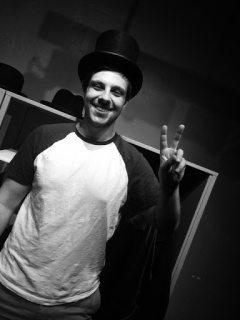 |
| V for Victory |
 |
| Clemmy and Churchill? |
Overall, Jamie and I both loved the War Rooms. It’s rare that we can decide on something we both enjoy, but this entertained us both! Keeping the memory of WWII (and WWI of course) alive is hugely important and Churchill’s War Rooms is a way we can take pride in the British stance against dictatorship. Keep Calm and Carry On!




